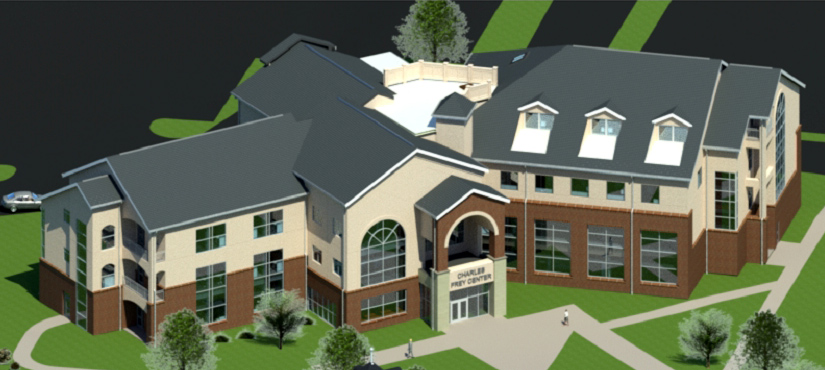Lancaster, PA –
Soil testing for a proposed new academic center revealed subsurface soil erosion, karst activity, soft to very soft soil zones, voids, and rock ledges. Seven test borings and 90 supplemental rock probes were performed within the proposed building footprint. The results indicated a varying soil mantle of silts and clays with evidence of subsurface soil erosion. The underlying rock was penetrated a minimum of five feet during the field testing to confirm the presence of bedrock. The top of rock varied widely throughout the site. The variation showed as shallow as 14 feet, to deeper than 55 feet below the ground surface.
Compaction grouting was performed from the top of rock to the proposed bottom of footing elevations, ranging from 3 to 89 feet deep. We performed the grouting program using a bottom-up procedure. Each of the compaction grouting points were grouted and documented in ascending one-foot stages until one or more of the determined grouting refusal criteria was attained. The grout was injected at the industry standard rate of 2.0 cubic feet per minute. This injection rate resulted in the best ratio of soil improvement to volume of grout. The upper soil zones are where most of the stresses from the building loads are distributed. It was critical that the slower injection rate was used so these soils could be treated to handle the stresses.

The successful completion of the grouting program allowed for shallow spread footings to support the proposed building. Approximately 4,211 linear feet of drilling, and 396 cubic yards of grout were injected into 131 injection locations. The project was completed within 29 days and employed two crews. The improved soil was prepared to handle the required net soil bearing capacity of 3,000 psf.

